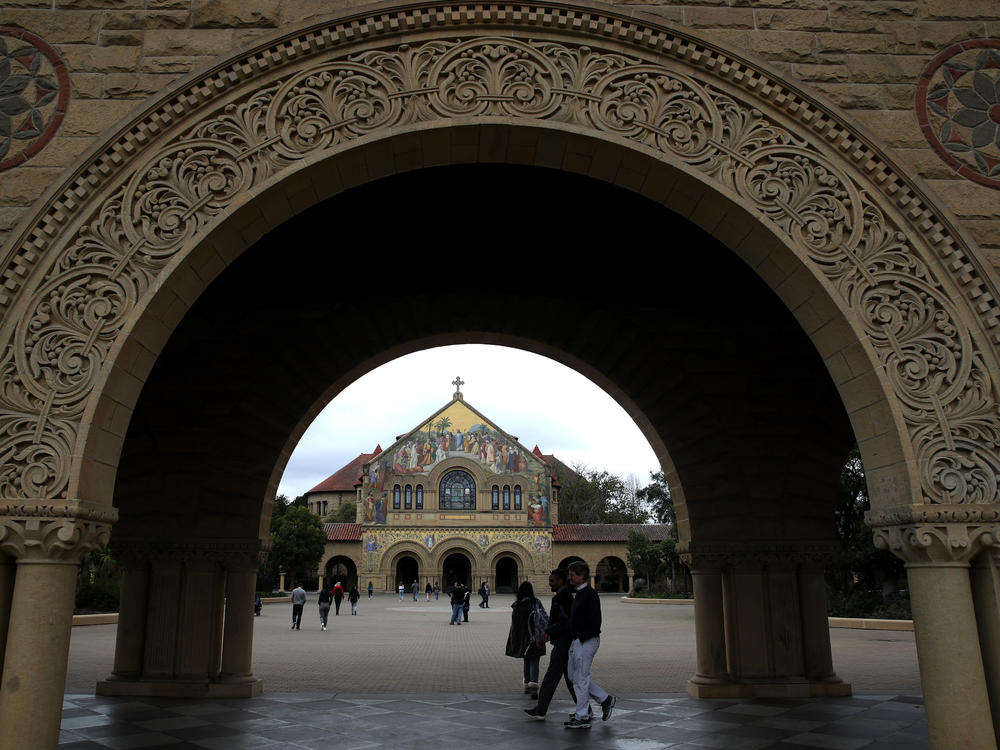Section Branding
Header Content
Stanford University apologizes for excluding Jewish students in the 1950s
Primary Content
Stanford University intentionally excluded Jewish students for years, according to a report put forth by a task force formed by the institution. The university's president issued an extensive apology Wednesday.
"This ugly component of Stanford's history, confirmed by this new report, is saddening and deeply troubling," wrote President Marc Tessier-Lavigne in a university-wide communication.
The task force surfaced a 1953 memo reflecting concerns about the number of Jewish students at the university. Subsequent efforts were made to limit recruitment and admissions from two particular schools in the Los Angeles area whose student populations were "from 95 to 98% Jewish," according to the report. Though Stanford did not track the number of Jewish students specifically, enrollment from these schools dropped precipitously.
"The impact was immediate and striking," the report states.
The university denied allegations of anti-Jewish bias for decades. Tessier-Lavigne pledged that Stanford would undertake a comprehensive examination of campus life for current Jewish students and embrace "religious and cultural needs."
Representatives from Stanford's Jewish Student Association applauded the statement but emphasized the need for action from the university as well. "This is just one important part of recognizing all types of diversity, including religious minorities," said Sophia Danielpour, co-president of the student group.
"The task force was only commissioned to look at this one specific time," she said, and observed that the impact of these kinds of practices can reverberate for years.
Though the efforts to limit enrollment took place decades ago, the question of how race and identity factor into college admissions is still a contentious one. The Supreme Court is scheduled to hear arguments this month in companion cases concerning the importance of race as a consideration in admissions at Harvard University and the University of North Carolina at Chapel Hill.
At issue is the question of whether affirmative action can play a role in a university's admissions formula. Both universities currently take race into account; both institutions have a history of exclusion of Black students for decades after their founding.
In both cases, the plaintiff is the group Students for Fair Admissions. The group is asking the Supreme Court to overturn precedent that permits race-conscious admissions in order to cultivate diversity in the student body.
Copyright 2022 NPR. To see more, visit https://www.npr.org.

